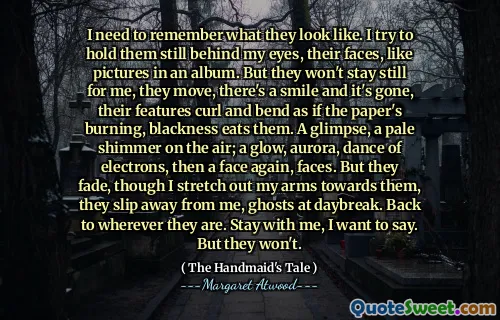A story is like a letter. Dear You, I'll say. Just you, without a name. Attaching a name attaches you to the world of fact, which is riskier, more hazardous: who knows what the chances are out there, of survival, yours? I will say you, you, like an old love song. You can mean more than one. You can mean thousands. I'm not in any immediate danger, I'll say to you. I'll pretend you can hear me. But it's no good, because I know you can't.
The quote from "The Handmaid's Tale" by Margaret Atwood reflects the intimate yet distant nature of storytelling. By addressing the reader as "you" without a specific name, the author creates a personal connection that transcends individual identity. This approach allows the story to resonate with many, evoking a sense of shared experience and emotional depth while avoiding the complexities and dangers associated with real-world facts. It emphasizes the universal nature of human connections through storytelling.
The speaker acknowledges the safety found in fiction, distancing themselves from the palpable risks of reality. By inviting the reader into a dialogue through the use of "you," the author conveys a longing for connection while simultaneously recognizing its limitations. This creates an illusion of presence, where thoughts are shared but not truly heard, reflecting the isolation inherent in both the characters' lives and the act of reading itself. This layered communication highlights the intricate relationship between writer, reader, and the narratives they share.






